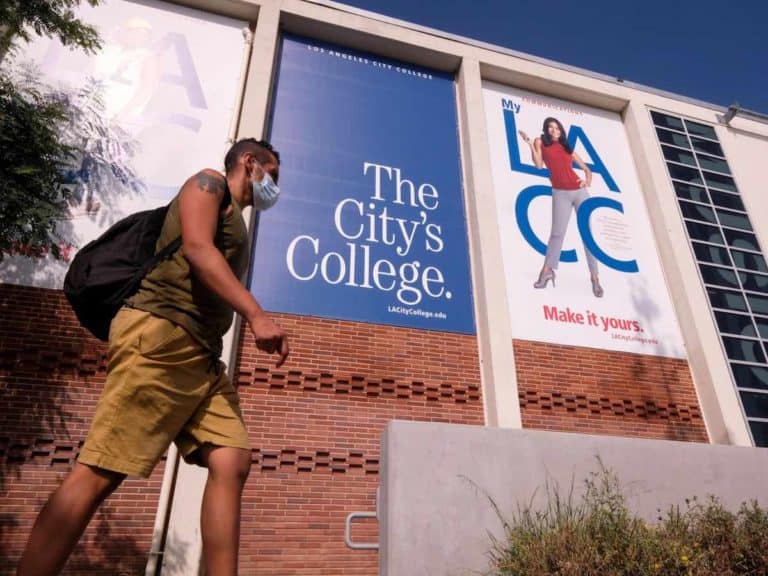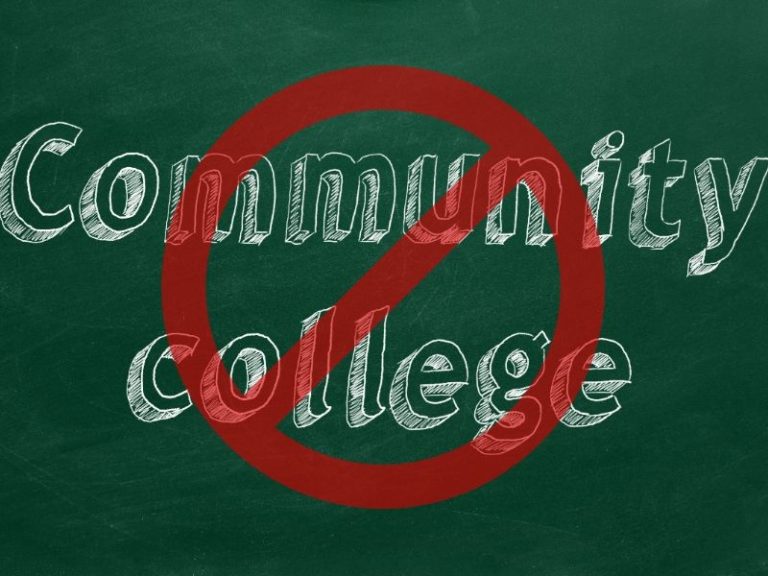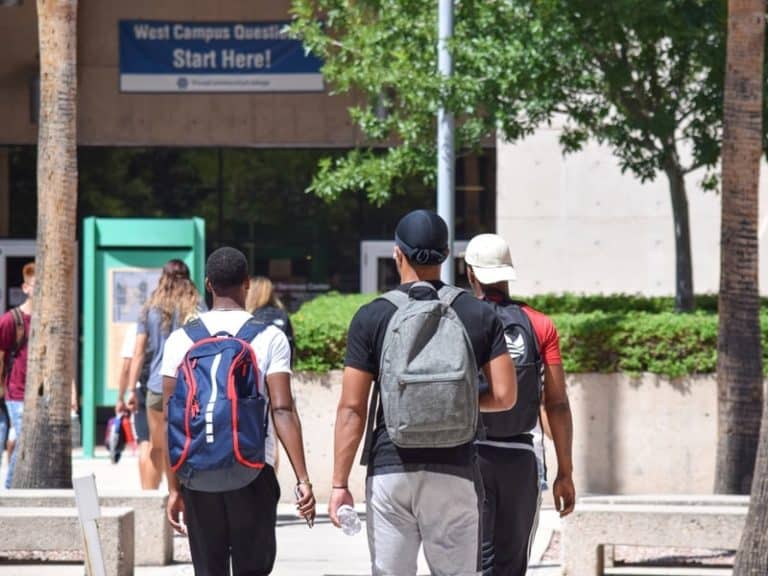Is Community College Worth It?
It’s no secret that community colleges offer degree programs that are cheaper and faster to complete. They also allow you to earn credits that can be transferred to four-year schools.
But you might have probably heard, too, that some colleges and universities do not accept credits from community colleges.
For instance, my wife received an Associate Degree in Information Technology from Howard County Community College and then transferred to the University of Maryland Baltimore County because these two colleges had an articulation agreement (more on that below).
However, she was not able to transfer all credits from HCC to UMBC (some credits did not transfer at all, and some transferred partially).
So, if you want to know if community college is worth it or not, here’s the short answer.
Going to a community college is worth it for low-income background students who like to earn a two-year undergraduate degree. It’s also worth it for those who plan on earning credits before transferring to a four-year school in order to lower the cost of completing a bachelor’s degree program.
But it doesn’t mean that attending a community college before applying to your top-choice college or university is the answer to a pocket-friendly four-year degree.
If you make the mistake of attending the wrong community college, you may end up spending more time and money earning a bachelor’s degree!
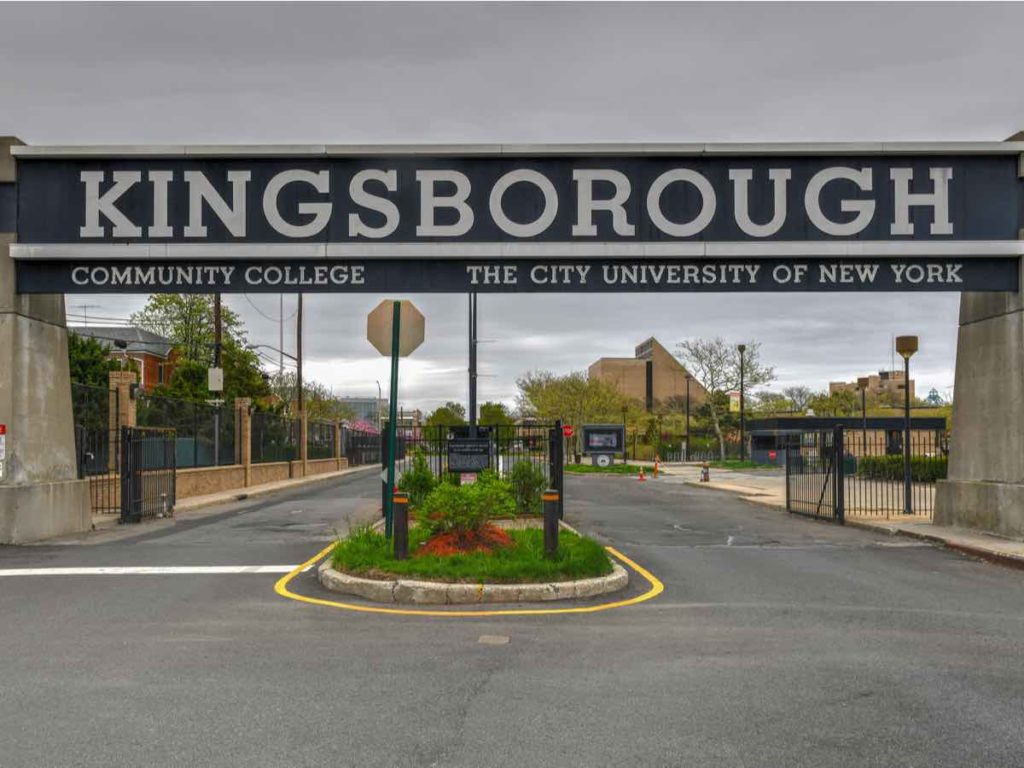
Is Attending Community College First Cheaper?
Based on average costs of attendance as of the academic year 2021 to 2022, earning an associate degree from a community college before going to a public college or university to earn a bachelor’s degree costs $82,470 in total for in-state students and $117,818 in total for out-of-state students.
One of the many reasons why some students who would like to become bachelor’s degree holders attend a community college first is to save a lot of money.
When you do the math, true enough, you will learn that the savings can range from $19,478 to $54,826.
As of this writing, the average sticker price at a community college is $15,748 — the average cost of an associate degree, in other words, is $31,496. Meanwhile, the average sticker price at a public college or university is $25,487 for in-state students and $43,161 for out-of-state students.
This means that spending the first two years at a community college and then the last two years at a four-year public school costs $82,470 for in-state students and $117,818 for out-of-state students.
It goes without saying that going to a public college or university, either one that’s non-profit or for-profit, after earning an associate degree from a community college will cost a lot more than going to a public school. Two years at a community college and two more years at a private school costs $137,930 (non-profit) and $101,746 (for-profit).
For a quick reference guide, the following is a table demonstrating the average costs of attendance of going to a community college first before attending a four-year institution for a bachelor’s degree versus attending a public or private college or university for four years:
| INSTITUTIONS | FOUR-YEAR AVERAGE COST |
|---|---|
| Community college + in-state public school | $82,470 |
| Community college + out-of-state public school | $117,818 |
| Community college + non-profit private school | $137,930 |
| Community college + for-profit private school | $101,746 |
| In-state public school | $101,948 |
| Out-of-state public school | $172,644 |
| Non-profit private school | $212,868 |
| For-profit private school | $140,500 |
However, please keep in mind that it’s possible for a college or university to not accept all credits earned by a transferee from a community college.
So, in other words, the individual may have to spend more than two years (and money, too!) at a four-year institution in order to be able to earn a bachelor’s degree.
This is why it’s very important to attend a community college with some sort of a transfer agreement with a college or university, usually one that is located nearby or within the same state.
In a few, we will talk about this critical matter — so don’t stop reading now!
But whether you plan on earning a bachelor’s degree at a public or private four-year school after graduating from a community college, the fact remains that a bachelor’s degree costs more than an associate degree. Especially for students from low-income backgrounds, this can be a major budgetary concern.
It’s a good thing that one of the perks of attending a community college is that it makes it possible for a student to get a job while studying or after completing a two-year degree program.

Compared to four-year institutions, community colleges have more flexible schedules. As a matter of fact, they offer far more night classes than their four-year counterparts. This allows working students to make money during the day and earn college credits in the nighttime.
The fact that the course workload at community colleges is lighter makes this even more plausible.
No one said that students should attend a four-year institution immediately after graduating from a community college.
As a matter of fact, some colleges and universities say that the number of students taking a gap year has increased by three times. After attending a community college, one may take a gap year to work and save for a bachelor’s degree.
According to data from the US Bureau of Labor Statistics (BLS), the median annual salary for occupations requiring workers to have an associate degree is $52,830.
That amount is 46.34% higher than the median annual salary of employed individuals with a high school diploma or an equivalent, which is $36,100. Meanwhile, the median annual salary of associate degree holders is 49.87% higher than that of those with a certificate or other non-degree award, which is $35,250.
If the goal is to get your hands on an associate degree, have a job and then attend a four-year school, it’s a must that you carefully choose which associate degree program you will complete at a community college.
And to give you an idea, here are some of the highest paying associate degree jobs:
| JOB TITLE | AVERAGE ANNUAL SALARY |
| Air Traffic Controller | $124,540 |
| Computer Programmer | $82,240 |
| Radiation Therapist | $80,570 |
| Nuclear Technician | $80,370 |
| Nuclear Medicine Technologist | $75,660 |
| Dental Hygienist | $74,070 |
| Registered Nurse | $70,000 |
| Web Developer | $67,990 |
| Aerospace Engineering Technician | $67,240 |
| Medical Sonographer | $65,620 |
| Electronic Engineering Technician | $63,660 |
| Police Officer | $62,690 |
| Avionics Technician | $61,270 |
| Radiologic and MRI Technologist | $60,070 |
| Respiratory Therapist | $59,710 |
| Electro-Mechanical Technician | $56,740 |
| Occupational Assistant | $56,690 |
| Mechanical Engineering Technicians | $55,360 |
| Telecom Installer | $53,880 |
| Funeral Service Worker | $53,550 |
| Drafter | $53,480 |
| Computer Network Specialist | $52,160 |
| Paralegal | $49,500 |
| HVAC Installer | $45,910 |
Please bear in mind that some employers or job positions may require additional training or certification on top of an associate degree in the same field or a related one.
Also, factors such as location, company and previous work experience can have a significant impact on how much money you could be making with an associate degree.
Community College Transfer Policies
Many community colleges and four-year institutions, usually within the same states, have transfer policies. These policies have varying levels of credit and degree transferability. Before using a community college as a stepping stone to a bachelor’s degree, one must research transfer policies.
Refrain from assuming that just because you have an associate’s degree from a community college means that you are already halfway to earning a bachelor’s degree when you attend a college or university.
It’s true that community college credits and even two-year degrees can be transferred to a four-year school.
However, in reality, not all colleges and universities will be willing to accept credits earned by applicants from community colleges — some of them may accept only a few while others may accept none at all. This is why it’s important to have an idea of which college or university you would like to attend after graduating from a community college.
When researching this matter, devote plenty of time learning about transfer policies.
Transfer policies, as the name suggests, are agreements between institutions in terms of credit transfer as well as degree recognition.
Some community colleges and four-year institutions have absolutely none, while others have good ones that can make it easy for associate degree holders to get their hands on a bachelor’s degree.

No transfer relationship
Planning on attending a community college in one state and then going to a four-year school in another state? Then chances are that the two institutions in your mind have no transfer relationship whatsoever.
The following are those that are likely to have no agreement:
- Community colleges and four-year institutions located in different states
- Community colleges and institutions that are very far away from each other
- Community colleges and private schools, for-profit or non-profit alike
However, just because the two schools you are planning to go to one after the other meet any of the conditions mentioned above doesn’t mean right away that the credits you will earn from a two-year institution will not be accepted at the college or university where you would like to complete a bachelor’s degree program.
Credits can still be transferred, but may not be as easy as when a transfer agreement between the two exists.
It can be a time-consuming task since each of the courses whose credits you will attempt to transfer will have to be evaluated meticulously — things such as course codes, course names, course descriptions and others will be considered. And if a course doesn’t match that of the four-year school, then its credits will not be accepted.
Articulation agreement
An articulation agreement is an agreement between community colleges and four-year institutions concerning a formal process of reviewing courses for equivalency among institutions. Instead of reviewing course content as transferees apply, colleges and universities already know which ones align with their standards and which ones don’t.
So, in short, four-year schools have already conducted reviews or evaluations in advance.
Colleges and universities will still accept courses and their corresponding credits into their bachelor’s degree programs separately, just like what they do with those from community colleges they have no agreement with whatsoever. However, at least they already know whether or not a course will be accepted.
Thanks to an articulation agreement between two- and four-year institutions, the process of transferring credits from a community college to a bachelor’s degree-granting school becomes kind of easier.
General Education Articulation
It’s true that in an articulation agreement a college or university already knows which associate degree courses they will and will not accept in advance. Still, the fact remains that there is a possibility that a transferee from a community college will not be able to transfer all previously earned credits.
Well, there is an agreement between community colleges and four-year schools where all general education credits will be accepted without any question, and it’s called the general education articulation.
The rule is simple: if the course falls under the general education category, it will transfer without a hitch.
Still, the fact remains that elective courses and courses required in a major from a community college may or may not be accepted by a four-year institution with which it has a general education articulation agreement. It will vastly depend on whether or not the non-general education course aligns with the school’s requirements or standards.
It’s exactly because of this why, without enough research beforehand, someone who has an associate degree from a community college may have to spend more than two years at a four-year institution if its relationship with the two-year school isn’t strong enough as to accept all courses, general education or otherwise.
Degree-to-Degree Agreement
Among all transfer policies between community colleges and four-year schools, the degree-to-degree agreement is the ultimate best. That’s because, as the name suggests, the entire associate degree from a community college is guaranteed to transfer to the bachelor’s degree from a four-year institution.
No courses or credits go to waste! No questions asked!
While it’s an extremely beneficial type of agreement for students who wish to continue studying beyond an associate degree in order to obtain a bachelor’s degree, a degree-to-degree agreement is rare.
More often than not, you will see this transfer policy between community colleges and state colleges and universities located within the same state or region. Community colleges with this agreement with four-year institutions serve as feeder schools — schools from which students or graduates pursue education at higher-level schools.
With a degree-to-degree agreement, earning an associate degree from a community college practically takes you halfway to having a bachelor’s degree from a partner college or university.
It’s due to this why the agreement is also known as the 2+2 transfer agreement.
An associate degree consists of 60 credits. On the other hand, a bachelor’s degree consists of 120 credits. Thanks to a degree-to-degree agreement, all 60 credits earned from a community college will get accepted, thus leaving you with only 60 more credits, which typically takes two years to complete, in order to have a bachelor’s degree.
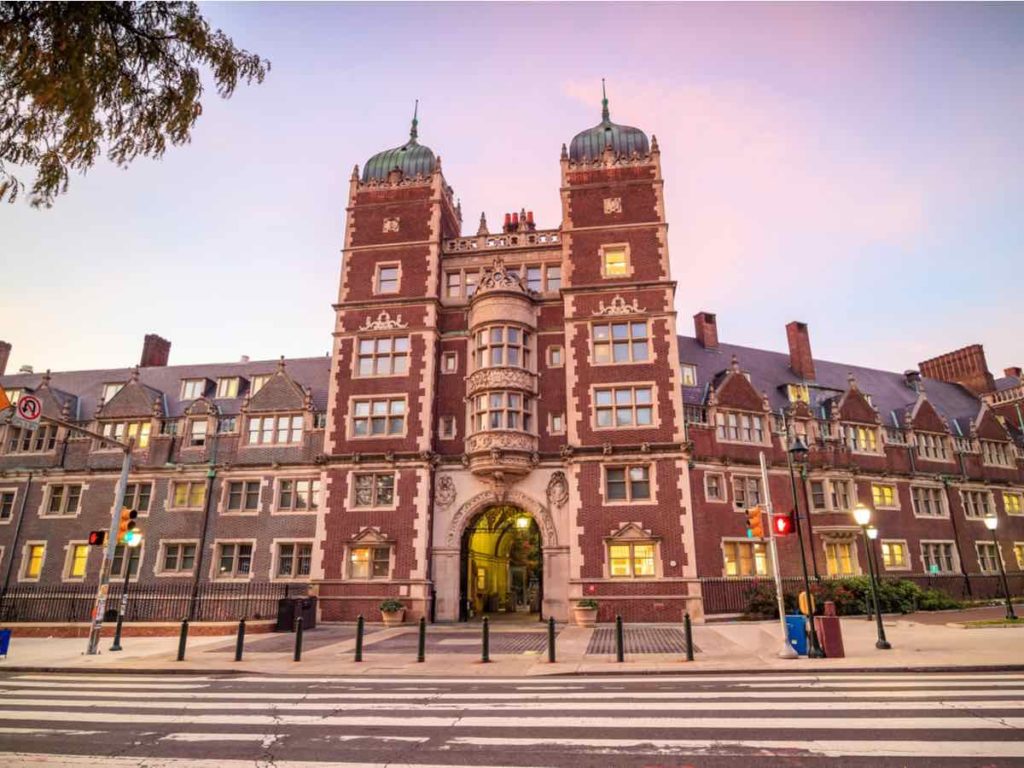
Do Community Colleges Offer Bachelor’s Degrees?
Traditionally, community colleges offer associate degrees and certificate programs only. However, in 2018, Senate Bill 850 was signed, giving 15 community colleges permission to offer bachelor’s degrees. To date, 24 states allow some or all of their community colleges to offer four-year degrees.
It’s not uncommon for some students to take some general education courses or earn associate degrees at community colleges to make attending four-year schools easier on the pocket.
But why transfer to a bachelor’s degree-granting college or university when the community college offers it?
Gone are the days when associate degrees and certificate programs are the only things students could get from community colleges. That’s because some two-year institutions in nearly 50% of all US states (as of this writing, at least) offer bachelor’s degrees in addition to the ones they are known to offer traditionally.
Some states limit the number of community colleges permitted to award bachelor’s degrees to four or less. However, there are also those that allow all community colleges to offer bachelor’s degrees.
For instance, all 28 community colleges in Florida have been granting bachelor’s degrees since 2008. In Colorado, member campuses of the Colorado Community College System (CCCS) have been offering four-year degrees since 2010. But it’s important to note that there is a limit to the number of bachelor’s degree programs they can offer.
Here are the 24 states that allow their community colleges to offer bachelor’s degrees:
- Arizona
- California
- Colorado
- Delaware
- Florida
- Georgia
- Hawaii
- Idaho
- Indiana
- Louisiana
- Michigan
- Minnesota
- Missouri
- Nevada
- North Dakota
- Ohio
- Oklahoma
- Oregon
- South Carolina
- Texas
- Utah
- Washington
- West Virginia
- Wyoming
If you are attending a bachelor’s degree-granting community college in one of the states mentioned above, there is no need to transfer to a four-year institution. And if you are attending one that does not offer a bachelor’s degree, you can transfer to a community college that offers the one you wish to earn, thus allowing you to stick to your budget.
Many states permit some or all of their community colleges to offer bachelor’s degrees to meet these goals:
- Meet workforce demands
- Address affordability
- Increase access to educational opportunities
Just Before You Attend a Community College
If your plan is to earn an associate degree without spending a lot so that you can start making money after just two years, then go ahead and attend the community college of your liking.
But if your goal is to earn credits or a full associate degree at a community college to spend less money and time at a four-year institution afterward in order to get a bachelor’s degree, make sure that you choose a community college with some sort of transfer agreement with a college or university from which you would like to attend after two years.
Make the right choice, and you may significantly lower the total cost of a bachelor’s degree. On the other hand, make the wrong choice of community college, and you may wind up spending more time and money than you would attending a four-year institution right after graduating from high school.
Read Next: Community College and Social Life: Your Questions Answered
Disclaimer: The views and opinions expressed in this article are those of the authors and do not necessarily represent those of the College Reality Check.
